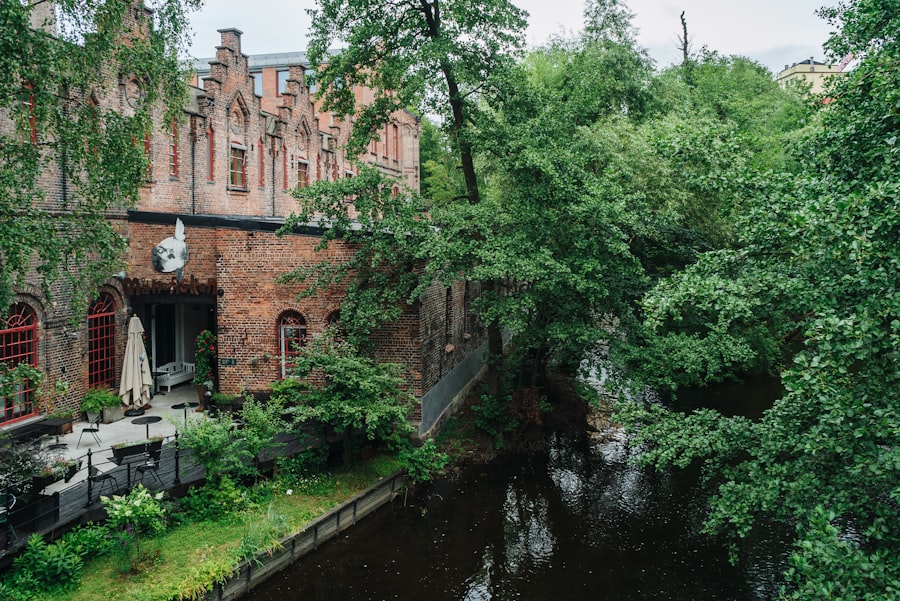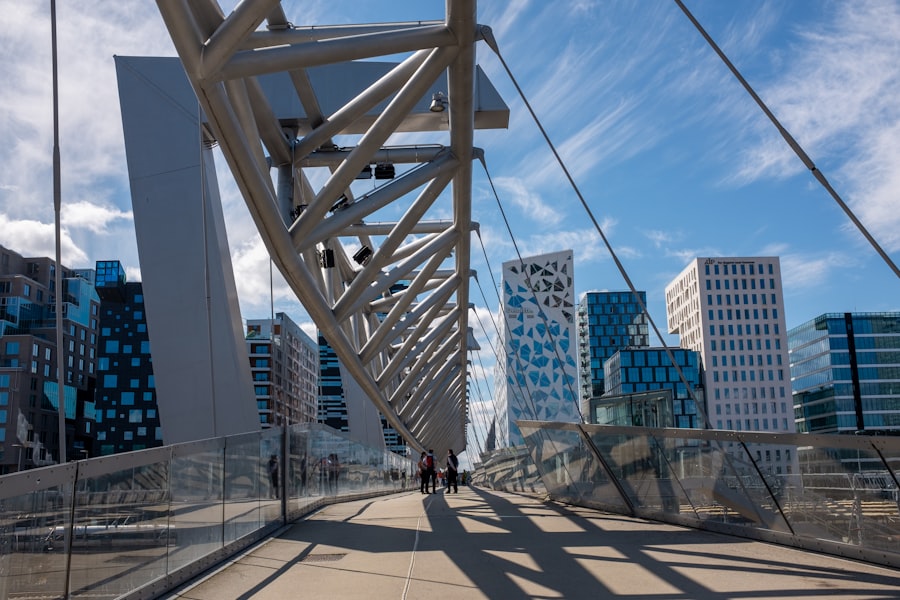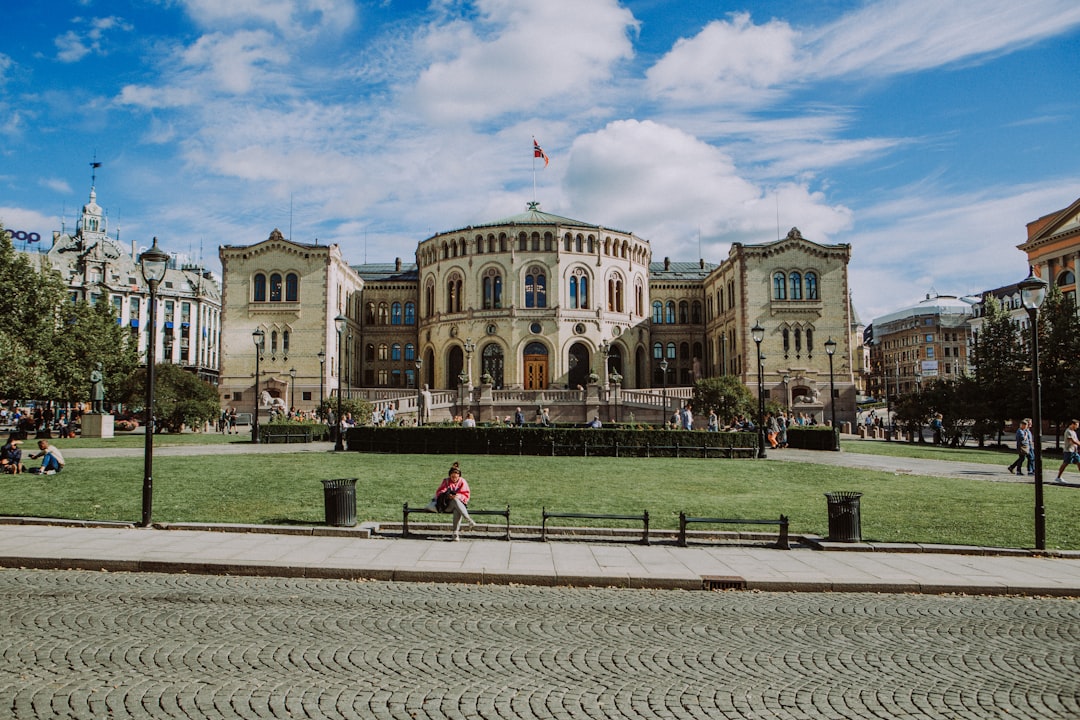Norway, with its breathtaking fjords, vibrant cities, and rich cultural heritage, has become a sought-after destination for both tourists and expatriates. As the demand for accommodation continues to rise, the rental market has evolved to offer a variety of options tailored to different needs. Among these, short-term and long-term rentals stand out as two primary choices.
Short-term rentals typically cater to visitors seeking temporary lodging, often through platforms like Airbnb or local agencies. In contrast, long-term rentals are designed for individuals or families looking for a more permanent residence, usually spanning several months or even years. The decision between short-term and long-term rentals in Norway hinges on various factors, including personal circumstances, financial considerations, and lifestyle preferences.
For tourists or those on business trips, short-term rentals provide the flexibility to explore different regions without the commitment of a lengthy lease. Conversely, long-term rentals offer stability and a sense of belonging, making them ideal for those planning to settle in Norway for an extended period. Understanding the nuances of each option is crucial for making an informed choice that aligns with one’s needs and aspirations. Take the first step. Book a consultation with the Norway Relocation Group for your move to Norway.
Summary
- Short-term rentals in Norway offer flexibility and convenience for travellers looking for temporary accommodation.
- Long-term rentals in Norway provide stability and security for those seeking a more permanent living arrangement.
- Short-term rentals allow for cultural immersion and a local experience, providing a unique way to explore Norway.
- Long-term rentals promote integration and community, offering a chance to build lasting relationships with neighbours and locals.
- When choosing between short-term and long-term rentals in Norway, consider the cost, legal considerations, and your personal preferences for flexibility and stability.
Short-term rentals in Norway come with a plethora of advantages that appeal to many travellers. One of the most significant benefits is the flexibility they offer. Visitors can choose from a wide range of properties, from cosy cabins in the mountains to chic apartments in bustling Oslo.
This variety allows guests to tailor their accommodation to their specific needs and preferences, enhancing their overall experience. Additionally, short-term rentals often come fully furnished and equipped with essential amenities, making it easy for guests to settle in quickly without the hassle of moving furniture or purchasing household items. However, short-term rentals are not without their drawbacks.
One notable concern is the potential for higher costs compared to long-term rentals. While short stays may seem economical at first glance, the cumulative expenses can add up significantly over time. Furthermore, short-term rentals may lack the sense of community that long-term living provides.
Guests often come and go, which can lead to a transient atmosphere that may not foster meaningful connections with neighbours or the local culture. Additionally, there may be restrictions on short-term rentals imposed by local authorities, which can complicate the booking process.
Pros and Cons of Long-Term Rentals in Norway
Long-term rentals present a different set of advantages that cater to those seeking stability and permanence in their living arrangements. One of the primary benefits is the cost-effectiveness associated with longer leases. Typically, landlords offer more favourable rates for tenants who commit to staying for an extended period, making it a financially sound choice for individuals or families planning to reside in Norway for several months or years.
Moreover, long-term rentals often provide a greater sense of security, as tenants can establish roots in a community and develop relationships with neighbours. On the flip side, long-term rentals may come with certain limitations that could deter some individuals. The commitment required for a long lease can be daunting, especially for those who value flexibility or are uncertain about their future plans.
Additionally, finding the right long-term rental can be time-consuming and may involve navigating various legalities and paperwork. Furthermore, tenants may have less freedom to personalise their living space compared to short-term rentals, as many landlords impose restrictions on alterations or decorations.
When evaluating the financial implications of short-term versus long-term rentals in Norway, it is essential to consider various factors that influence overall costs. Short-term rentals typically charge on a nightly basis, which can lead to higher expenses for those staying for extended periods. While the initial price may seem reasonable for a weekend getaway or a week-long holiday, the total cost can escalate quickly for longer stays.
Additionally, many short-term rental platforms charge cleaning fees and service charges that can further inflate the final bill. In contrast, long-term rentals generally offer more predictable monthly expenses. Renters often benefit from lower rates per square metre compared to short-term options, making it easier to budget for housing costs over time.
Furthermore, utilities such as water, electricity, and internet may be included in the rent or negotiated as part of the lease agreement, providing additional financial clarity. However, prospective tenants should also factor in potential upfront costs such as security deposits and agency fees when considering long-term rentals.
Flexibility and Convenience of Short-Term Rentals in Norway

One of the most appealing aspects of short-term rentals in Norway is the unparalleled flexibility they provide. For travellers who wish to explore multiple destinations within the country, short-term accommodations allow them to easily transition from one location to another without being tied down by a lengthy lease agreement. This convenience is particularly advantageous for those on holiday or business trips who want to experience different facets of Norwegian culture and geography.
Moreover, short-term rentals often come equipped with all necessary amenities, allowing guests to enjoy a home-like experience during their stay. Many properties feature fully stocked kitchens, laundry facilities, and comfortable living spaces that make it easy to unwind after a day of exploration. This level of convenience can significantly enhance the overall travel experience, as guests can enjoy the comforts of home while immersing themselves in the beauty of Norway.
Stability and Security of Long-Term Rentals in Norway
In contrast to the transient nature of short-term rentals, long-term rentals offer a sense of stability and security that many individuals and families find appealing. For those relocating to Norway for work or study, securing a long-term rental can provide peace of mind knowing they have a stable place to call home during their time abroad. This stability fosters a deeper connection to the local community and allows tenants to establish roots in their neighbourhoods.
Additionally, long-term rentals often come with legal protections that safeguard tenants’ rights. In Norway, rental agreements are typically governed by strict regulations that ensure fair treatment for both landlords and tenants. This legal framework provides an added layer of security for those committing to longer leases, as it outlines responsibilities regarding maintenance, rent increases, and eviction procedures.
Such protections contribute to a more stable living environment where tenants can feel secure in their housing situation.
Legal Considerations for Short-Term Rentals in Norway
Navigating the legal landscape surrounding short-term rentals in Norway can be complex due to varying regulations across municipalities. Many cities have implemented specific rules governing short-term rental properties to address concerns related to housing availability and neighbourhood dynamics. For instance, some areas may require property owners to obtain permits or register their rental units with local authorities before listing them on platforms like Airbnb.
Additionally, landlords must adhere to safety regulations and ensure that their properties meet certain standards before welcoming guests. This includes compliance with fire safety codes and providing necessary amenities such as smoke detectors and emergency exits. Failure to comply with these regulations can result in fines or even legal action against property owners.
Therefore, it is crucial for both hosts and guests to familiarise themselves with local laws before engaging in short-term rental arrangements.
Legal Considerations for Long-Term Rentals in Norway

Long-term rentals in Norway are subject to comprehensive legal frameworks designed to protect both tenants and landlords. The Norwegian Tenancy Act outlines essential rights and responsibilities for both parties involved in rental agreements. For instance, landlords are required to provide safe and habitable living conditions while tenants must pay rent on time and maintain the property in good condition.
Moreover, long-term rental agreements typically include specific clauses regarding rent increases and termination notices. Landlords must adhere to strict guidelines when raising rent prices, ensuring that increases are reasonable and justified based on market conditions. Tenants also have the right to challenge unjustified rent hikes through legal channels if they believe their landlord is acting unfairly.
Understanding these legal considerations is vital for anyone entering into a long-term rental agreement in Norway.
Cultural Immersion and Local Experience in Short-Term Rentals in Norway
One of the most enriching aspects of choosing short-term rentals in Norway is the opportunity for cultural immersion and authentic local experiences. Many short-term rental properties are situated within residential neighbourhoods rather than tourist hotspots, allowing guests to engage more closely with everyday Norwegian life. This proximity enables visitors to explore local markets, cafes, and cultural events that they might otherwise miss if staying in traditional hotels.
Furthermore, hosts of short-term rentals often take pride in sharing their knowledge about the area with guests. They may provide recommendations for hidden gems or lesser-known attractions that showcase the true essence of Norwegian culture. This personal touch enhances the travel experience by fostering connections between visitors and locals while creating lasting memories that go beyond mere sightseeing.
Integration and Community in Long-Term Rentals in Norway
Long-term rentals offer a unique opportunity for individuals and families to integrate into Norwegian society and build meaningful connections within their communities. By committing to a longer lease, tenants have the chance to establish relationships with neighbours and participate in local events or activities that foster a sense of belonging. This integration can be particularly beneficial for expatriates seeking support networks as they navigate life in a new country.
Moreover, living in a long-term rental allows individuals to immerse themselves fully in Norwegian culture over time. They can learn the language through daily interactions with locals, participate in community initiatives, and gain insights into traditional customs and practices that shape Norwegian life. This deepened understanding not only enriches personal experiences but also contributes positively to social cohesion within diverse communities.
Choosing the Right Rental Option for You in Norway
Ultimately, the choice between short-term and long-term rentals in Norway depends on individual circumstances and preferences. Short-term rentals offer flexibility and convenience for those looking to explore various regions or enjoy temporary stays without commitment. They provide an excellent opportunity for cultural immersion but may come with higher costs and less stability.
On the other hand, long-term rentals present an attractive option for those seeking security and community integration during their time in Norway. They allow individuals to establish roots while benefiting from legal protections that ensure fair treatment within rental agreements. For those considering learning Norwegian during their stay, enrolling in courses at NLS Norwegian Language School in Oslo can greatly enhance your experience by facilitating communication with locals and deepening your understanding of Norwegian culture.
With tailored programmes designed for various proficiency levels, NLS offers an excellent opportunity to complement your living arrangements—whether you choose short or long term—with language skills that will enrich your time in this beautiful country. In conclusion, whether you opt for a short-term getaway or a long-term residence, understanding your needs will guide you toward making an informed decision that aligns with your lifestyle aspirations while enjoying all that Norway has to offer.
Learn more about the Norwegian classes at the NLS Norwegian Language School in Oslo

